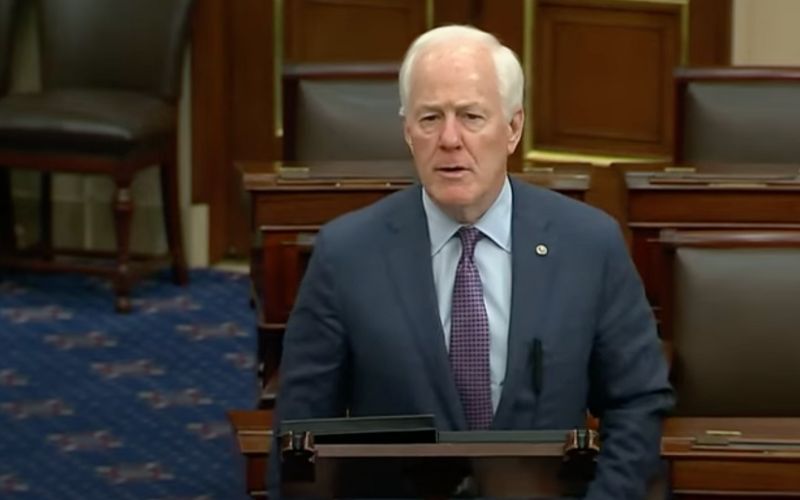
- Details
- By Native News Online Staff
Cornyn’s comment was made last week on a call with reporters, questions if Speaker Mike Johnson be able to "deal with this bunch of wild Indians over in the House."
“Senator Cornyn’s recent derogatory remarks, referring to his colleagues as a ‘bunch of wild Indians,’ is more than just disappointing; but deeply disrespectful,” the NCAI statement read. “It perpetuates damaging stereotypes about our diverse and vibrant American Indian and Alaska Native communities. This is especially disconcerting as we approach Native American Heritage Month, a time meant to celebrate and honor these communities. NCAI strongly disapproves of the Senator’s comments and encourages the Senator to seize this moment as an opportunity to educate himself about the rich history, struggles, accomplishments, and dignity of Native peoples. Our nation’s commitment to understanding and respect should be a standard held high by all our public servants.”
Cornyn’s comment also drew ire from fellow lawmaker Jared Huffman (D-California)
“You sound like Archie Bunker,” the congressman tweeted, comparing Cornyn to the infamous bigot at the center of the classic TV show All in the Family.
Texas, the state Cornyn has represented for more than 20 years, is home to three federally recognized tribes: the Alabama-Coushatta Tribe of Texas, the Kickapoo Traditional Tribe of Texas, and the Ysleta del Sur Pueblo.
According to the 2020 Census, 515,114 people in Texas identify as Amerian Indian or Alaska Native, making up 1% of the state’s population,
More Stories Like This
Native News Weekly (August 25, 2024): D.C. BriefsUS Presidents in Their Own Words Concerning American Indians
Indigenous Actor Elaine Miles Reports Detention by Alleged ICE Agents
Happy Thanksgiving from Native News Online
Coming Up on Native Bidaské: Behind the Animation: Joey Clift Talks “Pow” and Native Storytelling
Help us tell the stories that could save Native languages and food traditions
At a critical moment for Indian Country, Native News Online is embarking on our most ambitious reporting project yet: "Cultivating Culture," a three-year investigation into two forces shaping Native community survival—food sovereignty and language revitalization.
The devastating impact of COVID-19 accelerated the loss of Native elders and with them, irreplaceable cultural knowledge. Yet across tribal communities, innovative leaders are fighting back, reclaiming traditional food systems and breathing new life into Native languages. These aren't just cultural preservation efforts—they're powerful pathways to community health, healing, and resilience.
Our dedicated reporting team will spend three years documenting these stories through on-the-ground reporting in 18 tribal communities, producing over 200 in-depth stories, 18 podcast episodes, and multimedia content that amplifies Indigenous voices. We'll show policymakers, funders, and allies how cultural restoration directly impacts physical and mental wellness while celebrating successful models of sovereignty and self-determination.
This isn't corporate media parachuting into Indian Country for a quick story. This is sustained, relationship-based journalism by Native reporters who understand these communities. It's "Warrior Journalism"—fearless reporting that serves the 5.5 million readers who depend on us for news that mainstream media often ignores.
We need your help right now. While we've secured partial funding, we're still $450,000 short of our three-year budget. Our immediate goal is $25,000 this month to keep this critical work moving forward—funding reporter salaries, travel to remote communities, photography, and the deep reporting these stories deserve.
Every dollar directly supports Indigenous journalists telling Indigenous stories. Whether it's $5 or $50, your contribution ensures these vital narratives of resilience, innovation, and hope don't disappear into silence.
 The stakes couldn't be higher. Native languages are being lost at an alarming rate. Food insecurity plagues many tribal communities. But solutions are emerging, and these stories need to be told.
The stakes couldn't be higher. Native languages are being lost at an alarming rate. Food insecurity plagues many tribal communities. But solutions are emerging, and these stories need to be told.
Support independent Native journalism. Fund the stories that matter.
Levi Rickert (Potawatomi), Editor & Publisher

